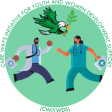Organizers:
- Implementing Partner: American University of Nigeria (AUN)
- Support Organization: Care Ways Initiative for Youth and Women Support Development
In the underserved communities of Michika, Bazza, and Kuzum, many individuals face barriers to achieving financial independence due to limited skills and business knowledge. To address this, the American University of Nigeria (AUN), in partnership with the Care Ways Initiative, organized a three-day empowerment program to equip youth and women survivors with the skills necessary to start and scale up small businesses. The initiative focused on practical livelihood opportunities such as trading watermelon, groundnut, and producing local soap, providing both training and financial support.
Workshop Objectives
The program aimed to empower vulnerable youths and young women by providing them with livelihood skills that would enable them to start or expand small businesses, thereby improving their socio-economic stability and contributing to local economic growth. Key objectives included:
- Teaching participants essential skills for local small businesses, including trading and production.
- Providing guidance on developing business plans and managing finances.
- Offering financial support through small grants to help beneficiaries scale up their ventures.
Background
Many individuals, particularly in climate-affected and underserved regions, lack the skills and knowledge needed to run successful small businesses. This training targeted youth and young women, providing them with practical skills in common local ventures like watermelon and groundnut trading and local soap production. The goal was to equip them with the tools to become self-reliant and financially independent, contributing positively to the local economy.
Key Highlights
Over the course of the three-day program, participants were engaged in various activities designed to build their capacity in both practical and theoretical business knowledge:
- Day 1 & 2: Focused on livelihood skills acquisition, including trading and local production techniques. Participants learned the basics of trading watermelon and groundnuts, as well as how to make and sell local soap, all popular trades in their region.
- Day 3: Centered on business development planning and financial literacy. Participants were taught how to craft a business plan, set financial goals, and manage their resources effectively.
- Grants Distribution: At the end of the workshop, five participants received small grants of 50,000 Naira each to help them scale up their businesses, with guidance on how to use these funds to grow their ventures.
Achievements
The workshop was successful in achieving its goals of imparting essential business knowledge and providing financial support to participants. Key outcomes included:
- Business Skills Acquisition: Participants gained a foundational understanding of small business operations, including budgeting, financial planning, and market analysis.
- Business Planning: Beneficiaries were able to develop business plans for their chosen ventures, such as watermelon trading and local soap production.
- Empowerment: Youth and young women were empowered with skills that will enable them to become self-employed and financially independent.
- Financial Support: Five participants received grants to help them scale up their businesses, giving them a crucial boost in their entrepreneurial journeys.
Impact and Reach
The program trained 25 participants, including 10 women and 15 men, with representation from women-led organizations and diverse age groups:
- Age Breakdown: 14 participants were aged 18-25, 9 participants were aged 25-35, and 2 participants were over 35.
This diverse group came from various sectors within Michika, Bazza, and Kuzum.
Conclusion
The three-day program proved highly effective in providing youth and women survivors with the skills, knowledge, and financial resources needed to start or expand small businesses. By combining hands-on livelihood training with business development guidance and financial support, the initiative empowered participants to become self-reliant, contributing to the socio-economic development of their communities.

